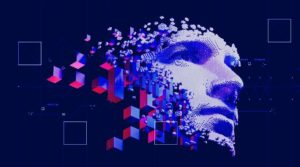How Generative AI will Impact the Security Industry
Although much is happening in regards to convergence, there continues to be two distinct elements to the “security industry” – Cyber and Physical. So the following will refer to both Cyber and Physical impacts separately.

Generative AI, which refers to AI systems capable of creating new data or content, is poised to have a significant impact on the Cyber security industry. Here are some potential ways that generative AI could affect security:
- Malware development: One concern is that generative AI could be used to create new and more sophisticated malware. For example, attackers could use generative AI to develop new variants of existing malware that are more difficult to detect by security software.
- Password cracking: Generative AI could be used to create realistic password guesses, making it easier for attackers to crack passwords and gain unauthorized access to systems or accounts.
- Social engineering: Generative AI could be used to create convincing phishing emails, social media posts, and other social engineering attacks that are difficult for people to distinguish from real communications.
- Adversarial attacks: Generative AI can be used to create adversarial attacks, which are attacks designed to fool machine learning models by creating input data that is specifically crafted to trigger a false response. This could be used to bypass security systems or fool automated detection systems.
- Improved security: On the positive side, generative AI could be used to improve security by creating more realistic simulations for training purposes, allowing security professionals to practice responding to a wider range of potential threats.
The impact of generative AI on the cyber security industry will depend on how it is used. While there are certainly concerns about the potential misuse of generative AI by malicious actors, there are also opportunities to use this technology to improve security and stay ahead of emerging threats.
Turning to the impact on physical security:
- Improved surveillance: Generative AI can be used to improve surveillance systems by enabling cameras to identify and track objects, people, and vehicles more accurately. This could be particularly useful in crowded areas or places where there are many moving objects.
- Threat detection: Generative AI can be used to identify and classify potential threats, such as weapons or suspicious behavior, in real-time. This could help security personnel respond more quickly to potential security breaches.
- Access control: Generative AI can be used to improve access control systems by allowing for more accurate and efficient identification of people. This could include facial recognition, voice recognition, or other biometric authentication methods.
- Predictive maintenance: Generative AI can be used to predict when security systems, such as cameras or alarms, will require maintenance or repairs. This could help prevent downtime or system failures.
- Simulations and training: Generative AI can be used to create realistic simulations for training security personnel on how to respond to various security scenarios. This could help improve the effectiveness of security teams and reduce the risk of human error.
Generative AI has the potential to revolutionize the physical security industry by enhancing the capabilities of security systems and enabling new applications. However, there are also concerns about the ethical implications of using these technologies, particularly around issues such as privacy and bias. It will be important for the security industry to carefully consider the potential benefits and risks of generative AI and to use these technologies in responsible and ethical ways.